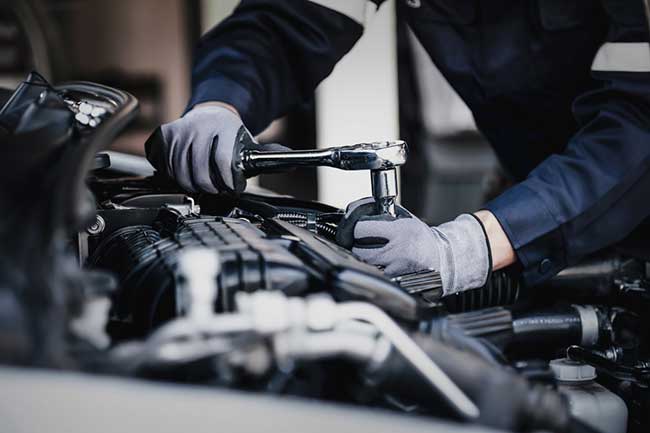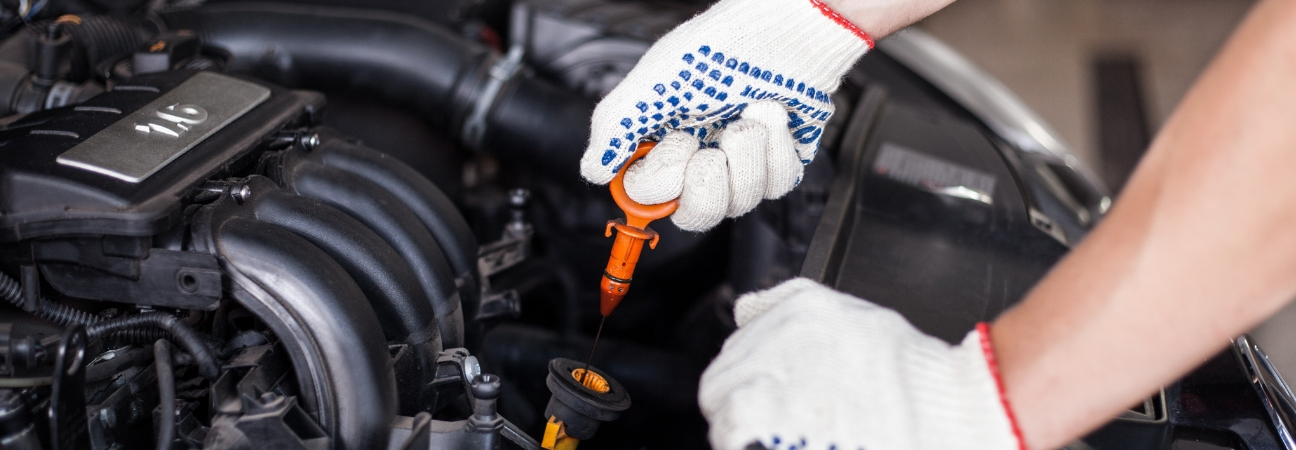All Categories
Featured
When it involves preserving a vehicle, comprehending the distinctions in between routine repair and maintenance is necessary for cars and truck proprietors. Both aspects are needed for the longevity and dependability of your vehicle, but they offer distinct objectives and are managed in different ways. By recognizing when to do normal upkeep versus when to address repair services, you can maintain your automobile running efficiently and stay clear of pricey surprises.
![]()
Regular Maintenance: Prevention is Trick. Regular upkeep includes the regular, preventative care that your cars and truck calls for to stay clear of future problems. It is commonly set up at specific periods, such as every 3,000 or 5,000 miles, based upon your vehicle's handbook or maker recommendations. Routine upkeep aids ensure that your auto stays in optimal condition, stopping damage from triggering significant issues down the line.
Some usual instances of regular upkeep consist of:
Oil Changes: Routine oil changes are crucial to maintain your engine lubed and running effectively. Oil aids reduce friction between engine parts, preventing getting too hot and unneeded wear. Tire Upkeep: This includes tire turnings, balancing, and checking tire pressure. Appropriate tire upkeep makes certain much better fuel efficiency, managing, and tire longevity. Brake Inspections: Routine look at your brakes, consisting of pads and fluid degrees, can capture any type of potential concerns early, protecting against brake failure and ensuring security. Liquid Checks and Top-Ups: Ensuring your automobile has the appropriate degrees of coolant, transmission fluid, power steering fluid, and brake fluid is essential for total lorry health and wellness. Air Filter Substitute: Replacing the air filter ensures that your engine obtains tidy air, which helps it run more successfully and minimizes engine stress. Routine maintenance is normally arranged and doesn't include fixing any kind of busted parts-- it has to do with keeping everything in good functioning order and preventing future malfunctions.
Fixes: Repairing the Unexpected. Fixings, in comparison, are necessary when something fails with your car. Repairs deal with problems that influence the vehicle's performance or security and need to be dealt with as quickly as feasible. Unlike upkeep, which is preventative, repair work usually occur when parts have worn out, stopped working, or malfunctioned.
Instances of common repair work consist of:
Transmission Issues: If your automobile is having difficulty changing experiences or equipments slipping, the transmission might require repair work or replacement. Engine Failure: If your engine begins misfiring, getting too hot, or delaying, it may require significant fixings or substitute of components like the timing belt, pistons, or seals. Brake Services: While brake pads become part of routine upkeep, if your brakes are making a grinding sound or are no much longer operating correctly, brake repair services will be needed, such as changing the calipers or the blades. Battery Substitute: If your automobile will not start or the battery is no more holding a fee, you'll require a substitute battery, which is a repair service. Suspension and Steering Fixings: Issues with the suspension or guiding system-- such as problem guiding or a rough adventure-- can be indicators that parts like struts or shock absorbers require repair. Repairs are generally extra costly and immediate than routine upkeep. They are needed when something breaks or malfunctions, which can impact the car's functionality and safety.
Secret Differences Between Routine Repair And Maintenance. Timing: Routine upkeep is precautionary and executed at scheduled intervals, while fixings are reactive and take place when something fails. Expense: Maintenance is generally less costly, as it involves monitoring and changing smaller sized fluids or components. Fixings, especially significant ones, have a tendency to be more expensive as a result of the complexity of fixing busted or malfunctioning elements. Objective: The objective of upkeep is to maintain your vehicle running well and prevent issues. Repair services, on the various other hand, are needed to repair problems that have already taken place. Frequency: Routine maintenance occurs constantly at established periods (e.g., every 5,000 miles), while repair work are much less foreseeable, frequently happening when parts put on or fall short out unexpectedly. Why Both are essential. Both regular upkeep and repairs are vital for the lasting health and wellness of your lorry. Routine upkeep assists maintain your vehicle running efficiently and can prevent several typical issues from establishing in the initial place. By remaining on top of arranged solutions, you can resolve tiny troubles before they become expensive repairs.
![]()
Nonetheless, repair work are often inescapable. Also with the very best maintenance, parts wear over time, and unforeseen problems can occur. When repair services are needed, addressing them immediately can stop additional damage and ensure your automobile's safety and reliability.
Conclusion. In summary, understanding the difference between regular repair and maintenance helps you take the right actions to look after your cars and truck. Regular upkeep can conserve you money by protecting against larger problems, while repairs are required when something goes incorrect. By remaining aggressive with upkeep and addressing fixings when needed, you can extend the life expectancy of your automobile and make certain that it proceeds to carry out at its best for several years to find.

Regular Maintenance: Prevention is Trick. Regular upkeep includes the regular, preventative care that your cars and truck calls for to stay clear of future problems. It is commonly set up at specific periods, such as every 3,000 or 5,000 miles, based upon your vehicle's handbook or maker recommendations. Routine upkeep aids ensure that your auto stays in optimal condition, stopping damage from triggering significant issues down the line.
Some usual instances of regular upkeep consist of:
Oil Changes: Routine oil changes are crucial to maintain your engine lubed and running effectively. Oil aids reduce friction between engine parts, preventing getting too hot and unneeded wear. Tire Upkeep: This includes tire turnings, balancing, and checking tire pressure. Appropriate tire upkeep makes certain much better fuel efficiency, managing, and tire longevity. Brake Inspections: Routine look at your brakes, consisting of pads and fluid degrees, can capture any type of potential concerns early, protecting against brake failure and ensuring security. Liquid Checks and Top-Ups: Ensuring your automobile has the appropriate degrees of coolant, transmission fluid, power steering fluid, and brake fluid is essential for total lorry health and wellness. Air Filter Substitute: Replacing the air filter ensures that your engine obtains tidy air, which helps it run more successfully and minimizes engine stress. Routine maintenance is normally arranged and doesn't include fixing any kind of busted parts-- it has to do with keeping everything in good functioning order and preventing future malfunctions.
Fixes: Repairing the Unexpected. Fixings, in comparison, are necessary when something fails with your car. Repairs deal with problems that influence the vehicle's performance or security and need to be dealt with as quickly as feasible. Unlike upkeep, which is preventative, repair work usually occur when parts have worn out, stopped working, or malfunctioned.
Instances of common repair work consist of:
Transmission Issues: If your automobile is having difficulty changing experiences or equipments slipping, the transmission might require repair work or replacement. Engine Failure: If your engine begins misfiring, getting too hot, or delaying, it may require significant fixings or substitute of components like the timing belt, pistons, or seals. Brake Services: While brake pads become part of routine upkeep, if your brakes are making a grinding sound or are no much longer operating correctly, brake repair services will be needed, such as changing the calipers or the blades. Battery Substitute: If your automobile will not start or the battery is no more holding a fee, you'll require a substitute battery, which is a repair service. Suspension and Steering Fixings: Issues with the suspension or guiding system-- such as problem guiding or a rough adventure-- can be indicators that parts like struts or shock absorbers require repair. Repairs are generally extra costly and immediate than routine upkeep. They are needed when something breaks or malfunctions, which can impact the car's functionality and safety.
Secret Differences Between Routine Repair And Maintenance. Timing: Routine upkeep is precautionary and executed at scheduled intervals, while fixings are reactive and take place when something fails. Expense: Maintenance is generally less costly, as it involves monitoring and changing smaller sized fluids or components. Fixings, especially significant ones, have a tendency to be more expensive as a result of the complexity of fixing busted or malfunctioning elements. Objective: The objective of upkeep is to maintain your vehicle running well and prevent issues. Repair services, on the various other hand, are needed to repair problems that have already taken place. Frequency: Routine maintenance occurs constantly at established periods (e.g., every 5,000 miles), while repair work are much less foreseeable, frequently happening when parts put on or fall short out unexpectedly. Why Both are essential. Both regular upkeep and repairs are vital for the lasting health and wellness of your lorry. Routine upkeep assists maintain your vehicle running efficiently and can prevent several typical issues from establishing in the initial place. By remaining on top of arranged solutions, you can resolve tiny troubles before they become expensive repairs.

Nonetheless, repair work are often inescapable. Also with the very best maintenance, parts wear over time, and unforeseen problems can occur. When repair services are needed, addressing them immediately can stop additional damage and ensure your automobile's safety and reliability.
Conclusion. In summary, understanding the difference between regular repair and maintenance helps you take the right actions to look after your cars and truck. Regular upkeep can conserve you money by protecting against larger problems, while repairs are required when something goes incorrect. By remaining aggressive with upkeep and addressing fixings when needed, you can extend the life expectancy of your automobile and make certain that it proceeds to carry out at its best for several years to find.
Latest Posts
Take Advantage of Special Auto Repair Offers in Chicago at Montclare Auto Repair
Published en
1 min read
Secure and Improve Your Home with Weathercraft's Exterior siding Solutions
Published en
1 min read
Explore Budget-Friendly Auto Repairs with Montclare’s Monthly Service Specials
Published en
1 min read
More
Latest Posts
Take Advantage of Special Auto Repair Offers in Chicago at Montclare Auto Repair
Published May 28, 25
1 min read
Secure and Improve Your Home with Weathercraft's Exterior siding Solutions
Published May 25, 25
1 min read
Explore Budget-Friendly Auto Repairs with Montclare’s Monthly Service Specials
Published May 24, 25
1 min read